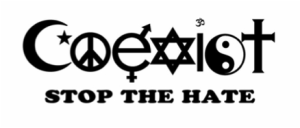Human Rights in the Post-Truth Era
Guest post by Viera Pejchal (Striskova) PhD. candidate at University of Geneva

In 2016, we celebrate Human Rights Day, 68 years after the adoption of the Universal Declaration of Human Rights and for the first time in the official acknowledged Post-Truth world. Does it mean that the human rights are no longer true? What are the implications for human rights activists, human rights positive people and, the human race in general?
The post-truth era has been defined via the priority that it gives to the emotions rather than factual arguments in discussions about public affairs. It is also called the post-politics era. The public has become more attentive—even addicted—to news and political statements that create emotion rather than to those providing actual information. First among the emotions, hatred has dominated public discourse. Accordingly, in recent political debates, politicians has not competed to present a new strategy, a plan to improve life conditions for their voters but rather used hateful expressions to divide society into ‘us’ and ‘them’. Some welcomed this ‘new’ approach because they were sick ‘of the political correctness’ that has ‘controlled public space’. But some of us are worried. For us, it is clear that opposing political correctness became a way to rebrand racism in ways that were politically acceptable in the post-civil-rights era. They say they are relieved to be able to call ‘things by their proper name’ and that their right to free speech allows them to do so. Indeed, principles of liberal democracy require respect for the use of free speech. True.
The exercise of free speech is needed for the exchange of opinions and arguments, and in order to negotiate what ideas will be applied. To choose the best option out from the marketplace of ideas. Also true. This is more so for Anglo-Saxon democracies, but it basically holds for all liberal democracies. However, in Europe, where we instead observe a marketplace of communities, we consider that democracy is not only about liberty but also about equality. To be free and equal in dignity and human rights is not only the first article of the Universal Declaration of Human Rights but one of the cornerstones of a properly functioning democracy. Egalitarian societies do not mean that everybody has equal pay, house or books. Instead, egalitarian societies provide its individuals equal standing as citizens and valuable members of the community.
If as a citizen, I am continuously attacked because of my faith, skin color, sexual orientation, disability or gender I probably will not engage in a free exchange of opinions. Moreover, I will be discourage from caring about the public space and will refrain from investing myself in public affairs. My capacities to participate in the liberal democracy are diminished every time someone’s use of free speech creates animosity and attacks who I am.
Post-politics leaders use the old paradigm of populism laced with conspiracy theories. First, they accuse ‘the others’ – the establishment and elites of complotting against the majority by accusing them of all the possible evils. Second, they claim to be the true representatives of the people but attack all who are slightly different from them – religious, ethnic or sexual minorities are not treated as part of the people. Third, they offer solutions – to vote for them because only in this way will all the problems disappear. In addition, they use hate spin as a political strategy which is manufactured vilification that exploits group identities to mobilize supporters and coerce opponents. However, during their discourse, there was no opportunity to listen to the solution because of the hatred that poisoned the public space. They enjoyed their right to speech to not be politically correct and to say that “you will be great again.” You – except slightly different members of the society. Because those that are different are not welcome it this post-truth society. Your hate speech is their silence and absence from public space.
Post-politicians and their populist tactics is to produce hatred and harm individuals and society. Perhaps, this obviousity is becoming banal and will be acknowledged too late. This may have significant consequences on how human rights and democracy will evolve in the near future. Effective enjoyment of human rights is one of basic functions of democracies. Liberal democracy, as we have known it, embraces pluralism and accepts diversity. If the post-politics deny diversity they deny human rights for all. We have already lost so much time and energy by listening to the unbearable noise of hatred which hijacked truth from public affairs. All human rights bearers – including the haters need to become more responsible in the enjoyment of their rights. Perhaps we need a new consensus on what kind of social contract we want to have in globalized society. To achieve this, more speech and less hate is necessary. Let’s remember some facts from history, how hate, that achieves certain pitch becomes extremely difficult to control.
